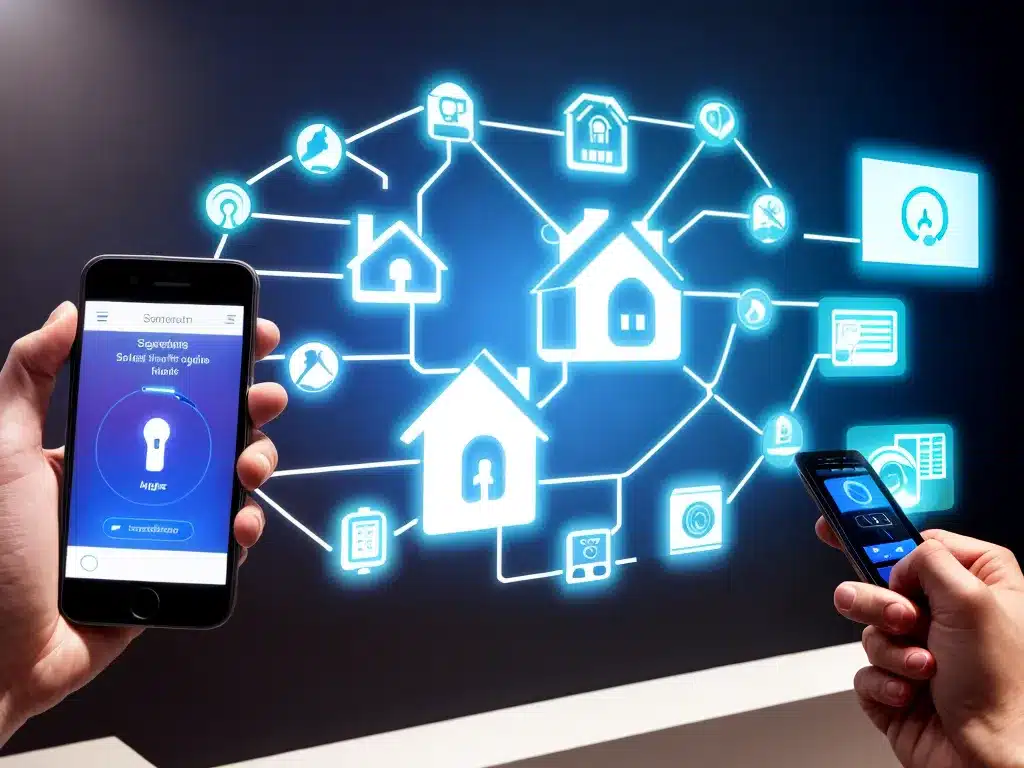
Introduction
In 2024, smart home devices like Alexa, Google Home, and smart TVs are more prevalent than ever. While these devices offer convenience through voice controls, automation, and connectivity, privacy has become a major concern. As an informed consumer in 2024, I have weighed the risks and benefits of these devices to determine if I can trust them.
The Benefits and Risks of Smart Home Devices
There are many benefits to having smart home devices in 2024. They allow me to easily control my home with just my voice. I can ask Alexa to turn on the lights, adjust the thermostat, play music, and more. These devices save me time, offer hands-free convenience, and help automate mundane tasks.
However, these conveniences come with privacy risks. Smart home devices are always listening and often lack adequate security protections. This enables hackers to gain access to the microphone and potentially eavesdrop on private conversations in my home. The devices also collect massive amounts of my personal data that could be shared with third parties or exploited.
I must decide if the benefits outweigh the risks when determining whether or not to trust these devices. Below I analyze the key factors that inform my decision.
Manufacturers’ Data Collection and Protection Policies
- The data collection policies of device manufacturers significantly impact privacy. Companies like Amazon, Google, and Samsung admit to collecting user data through smart home devices. They claim to anonymize this data and use it only to improve products and services.
- However, the scope of collection is often unclear and policies can change at any time without user consent. There have been instances of contractors listening to private Alexa conversations to improve voice recognition. This highlights the lack of transparency and control users have.
- Manufacturers claim they encrypt data and protect against hacking. But smart home devices have been shown to have security flaws that leave them vulnerable to attacks. Updates and patches aim to address this but it’s an ongoing issue.
Overall, I have little visibility into or control over how these companies use and protect my data. I must largely take them at their word, which is concerning from a privacy perspective.
Voice Data Analysis Capabilities
- In 2024, AI and big data analytics enables companies to infer a vast amount of information from voice data alone, including emotions, health conditions, age, gender, and more.
- By analyzing all of my voice commands and conversations that smart home devices capture, companies can gain incredibly intimate insights into my daily habits, interests, relationships, and even mental and physical wellbeing, far beyond what I explicitly share.
- While some may find this personalized profiling useful, it poses risks ranging from targeted advertising to discrimination based on protected categories like health or age, which I may not consent to or even be aware of. This level of stalking via AI is alarming.
The depth of insights companies can gain from always-on voice recording makes me hesitate to welcome their devices into my private spaces.
Emerging Legislation and Guidelines
- There is a lack of legislation explicitly governing smart home privacy. Companies rely on vague existing laws like the Children’s Online Privacy Protection Act.
- However, there are positive developments. The National Institute of Standards and Technology released voluntary guidelines for managing privacy risks from smart home devices that manufacturers can adopt.
- The FTC is also prioritizing enforcement of privacy policies and restrictions on collecting sensitive data from homes and children. Several laws are under discussion to update existing regulations for the smart home era.
While the legislative landscape is still evolving, stronger consumer privacy protections are on the horizon. However, I cannot currently rely on robust laws or oversight holding manufacturers accountable, which amplifies the risks.
Weighing the Trade-Offs
Given all of these considerations, I believe the privacy risks currently outweigh the conveniences. Allowing microphones and cameras that are always collecting data into my home enables surveillance that makes me deeply uncomfortable.
I cannot fully understand or control how my personal information is captured, retained or used when it is in the hands of companies whose business incentives do not always align with protecting my privacy. The likelihood of functions creeping increasingly beyond my expectations is high and risks only grow as data aggregation expands.
While no technology is 100% secure or private, I prefer technologies that collect the minimum data required and offer end-to-end encryption. For now, I will stick to “dumb” devices and leverage only the smart assistant features on my smartphone for limited functions where the benefits justify it. As privacy regulations strengthen, I will reevaluate incorporating smart home devices when both society and technology are better equipped to address the risks. However, in 2024, I cannot yet trust smart home devices with my private information.












